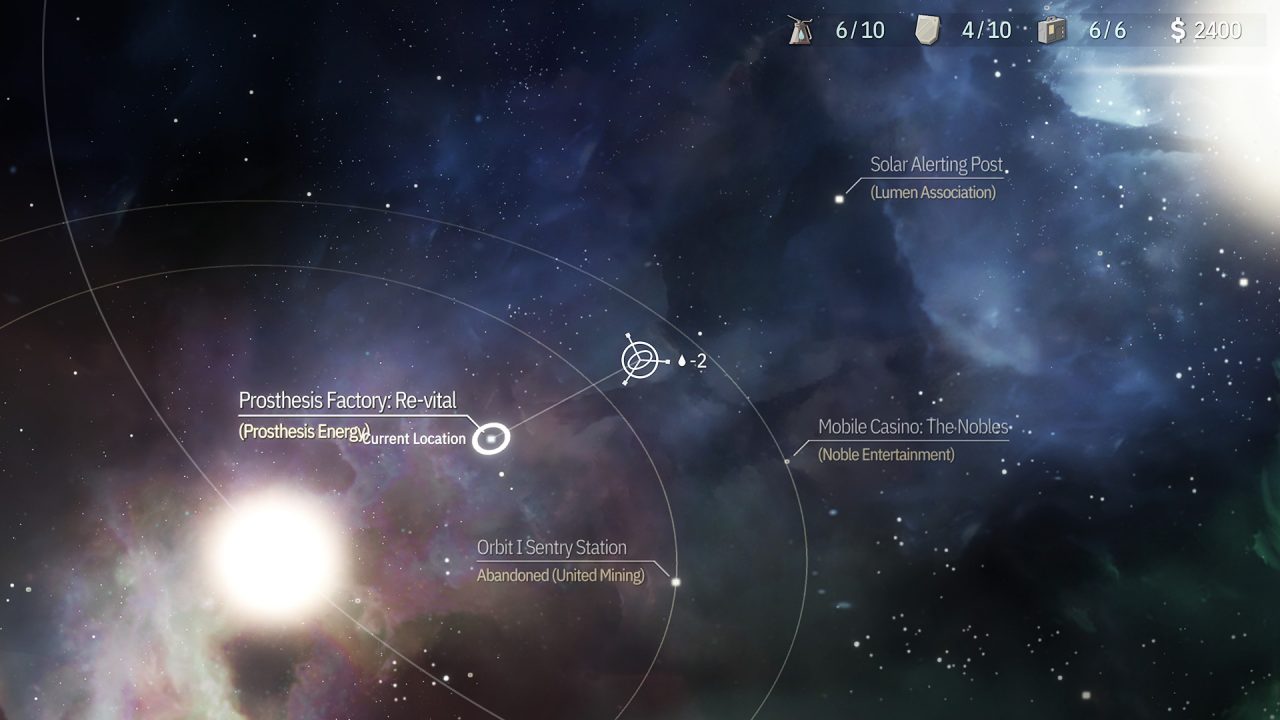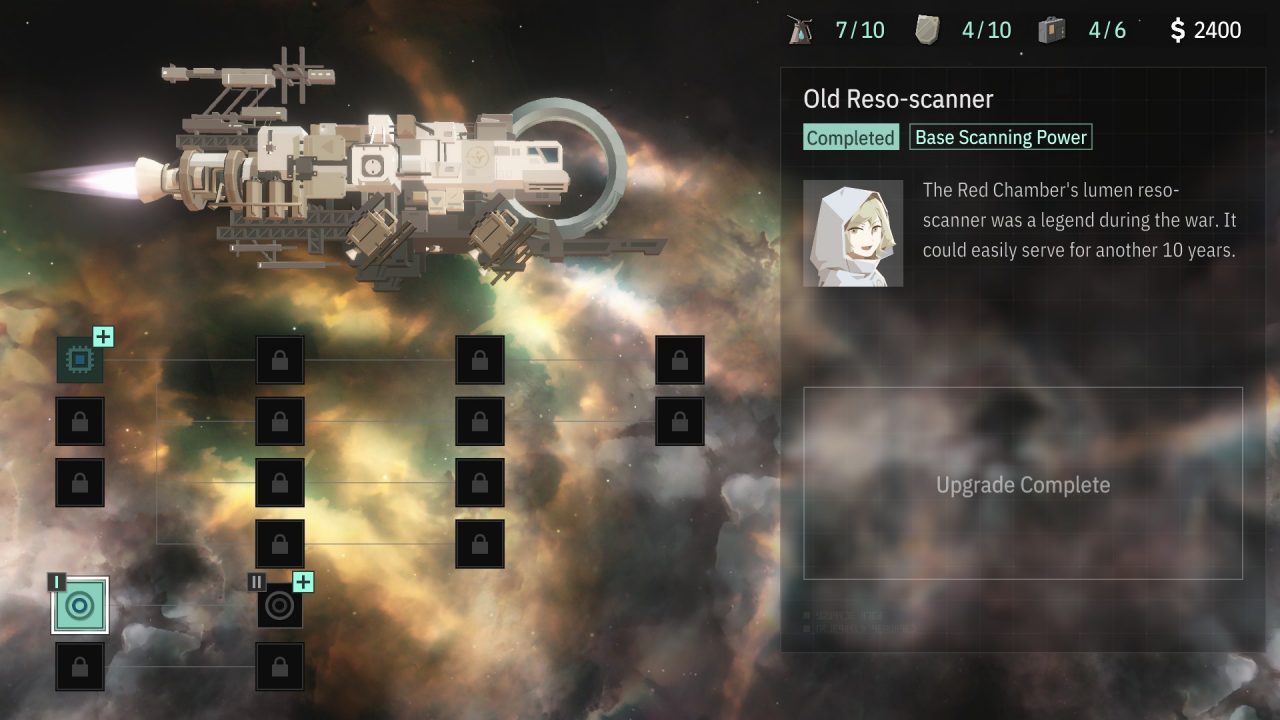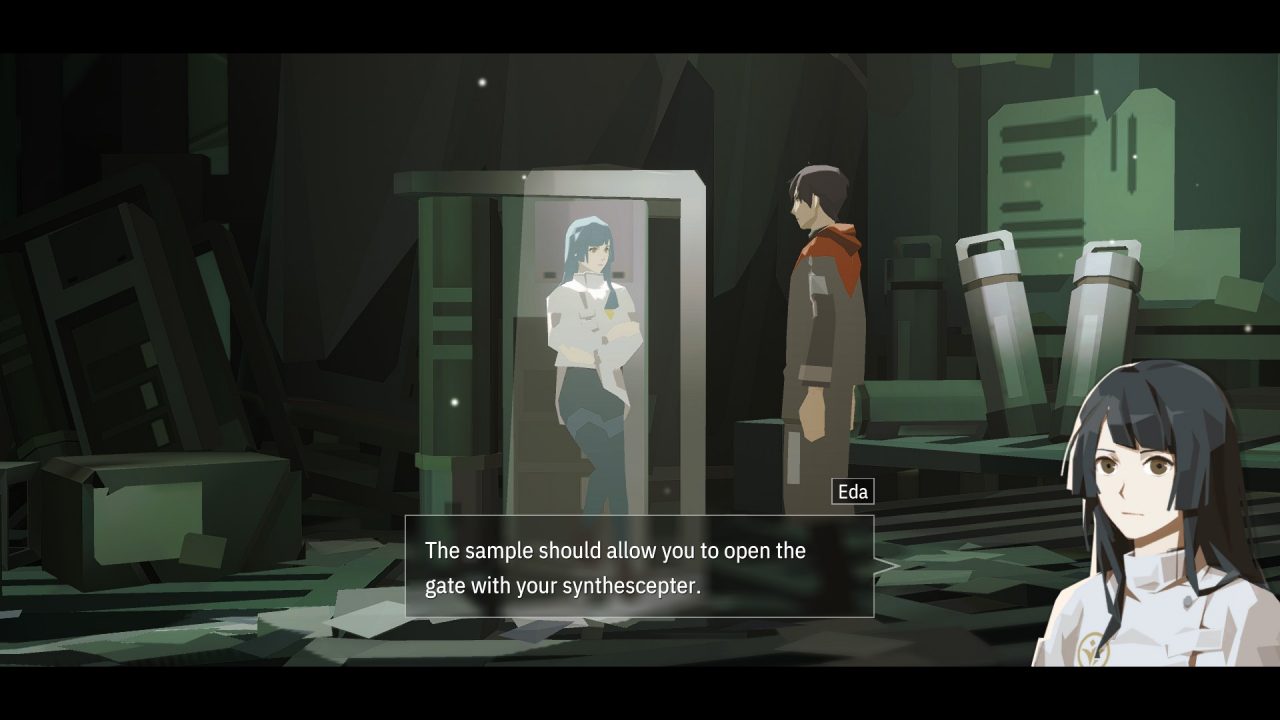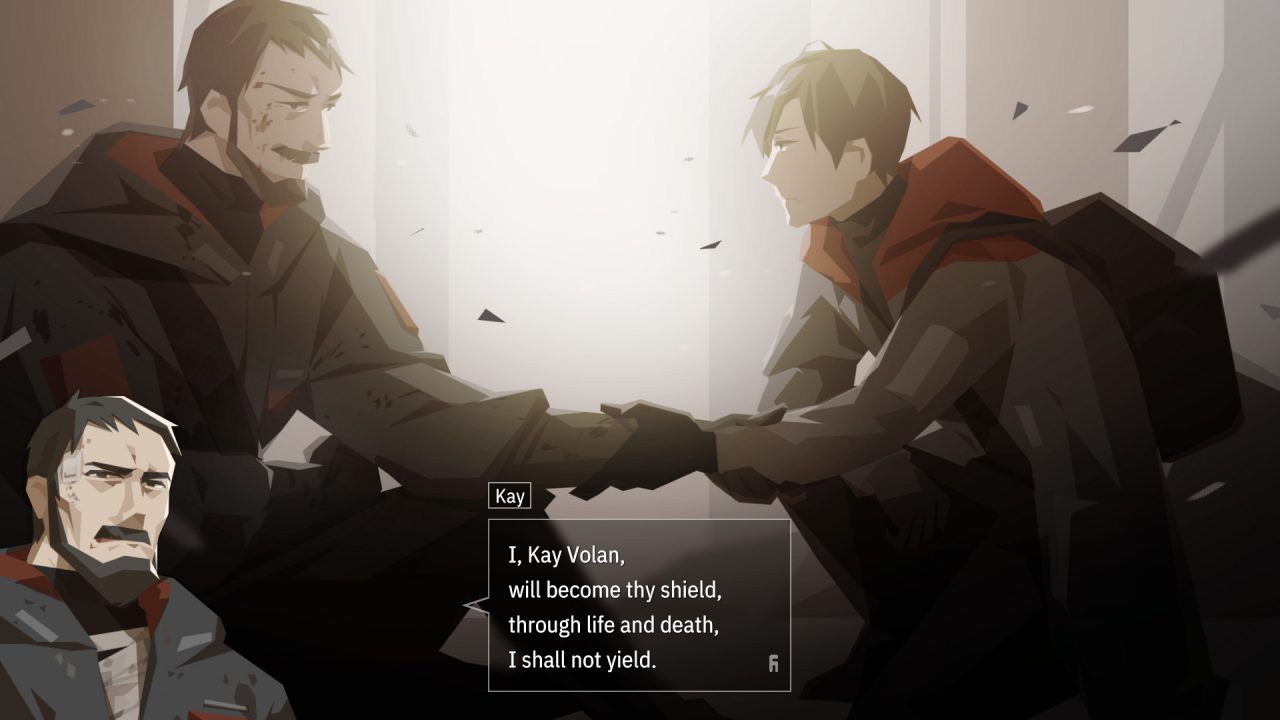An elderly man explores a cave untouched by humans for several decades in the hope of reuniting with a woman he made a promise to long ago. Traversing the nearly-mystical cave, he reflects on events sixty-six years prior, recalling that the most difficult thing in the entire universe is learning to love and accept yourself while living your own life. His recollection reminds him that the bonds formed on such an impactful journey can transcend even the boundaries of time and space.
This is how OPUS: Echo of Starsong sets its stage, weaving a story both moving and beautiful in equal measure. The narrative is a science fiction tale set in a universe where mystical caves float in space, containing a highly sought-after element called Lumen that is capable of a great many things. It is also a universe dealing with the aftermath of a terrible war for the rare and highly sought resource, leaving a great scar on those in its wake. Players take on the role of a much younger Jun Lee, setting out with his loyal guardian Kay, the duo hoping to explore caves and find deposits of Lumen after being exiled from their people. In doing so, Jun hopes to bring honor to his clan and help elevate their status. While trying to get information on a potential new cave, a twist of fate leads Jun and Kay to encounter Edalune and Remi. The two adopted sisters are searching for Lumen caves on their own personal mission and end up thrown together with Jun and Kay shortly following an altercation with pirates.

OPUS: Echo of Starsong is described as a narrative adventure game; I found it mixed graphic adventure elements with RPG/visual novel mechanics quite adeptly. The story plays out most often in gorgeously illustrated still scenes, with vibrant 3D graphics dedicated to when Jun and the others are exploring caves and other areas of import. The exploration elements are relatively straightforward: you move Jun (or sometimes Eda or Remi depending on the plot) across a clear path, interacting with and collecting items as you go until you reach a puzzle that needs to be solved to proceed further. These audio puzzles get solved by attuning a specific collected song sample, the “starsong” of the game’s title, to match the puzzle layout.
Outside of exploring, the newly formed crew travels the various systems using their spaceship. The ship has several key components to keep track of, ranging from a signal modifier to armor plating and fuel caches, all of which you can upgrade eventually. You can further strengthen and increase its capacity by collecting resources from various spots you uncover in your travels or buying needed upgrade materials from stores on space stations. Space travel and the upkeep of your ship is where most of the game’s RPG mechanics come into play. You even encounter “battle events” while flying that either have you relying on a character’s luck stat to possibly get through or utilize another type of decision to figure out how to overcome it instead. There is no actual combat in the title to be concerned about, as these scenarios largely play out thanks to decision-making from the player. It is still possible to get a game over in Echo of Starsong, but a game over will just send you back to the last auto-save point as an older Jun reflects on what “truly” happened back then.

The title’s sci-fi setting is wonderfully fleshed out and fully realized with locales that offer further world-building insight. Character interactions help paint a clearer picture as to how life is amongst the stars. Buying and selling goods is vital to ensuring your mission is well-funded and supplied, and the navigation map is easy enough to figure out how to use. You also get messages from various characters as you progress through the game that provide you with coordinates to potential areas of interest. Eda is a Witch, a woman born with the ability to detect and resonate with the starsongs of Lumen, and she uses this ability to scan for the exact locations of these sites throughout the game. Once the area is accessible, the exploration portion begins.
Overall, I found the gameplay and interactivity enjoyable without being too challenging. I appreciated the little moments where you’re given the opportunity to make a decision and slightly alter how a scene might play out or the outcome of a “space encounter.” Maneuvering through the navigation map and choosing when to scavenge for parts or upgrade the ship was interesting too, and I liked the little bits of personality and lore that came through the messaging system. Exploration segments were a nice change of pace from space travel navigation, and I liked how the movements and your exact available actions while exploring changed depending on whether you were in control of Jun, Eda, or Remi and what was going on in the narrative. For instance, if you try dragging something along with you, that changes your pace during the exploration segments.

I think my main gameplay complaint is the emphasis on randomness as far as the various “space encounters” and/or “battles.” There are difficulty tiers for each encounter, and you get the odds further in your favor by buying items for a specific character whenever they became available, but it still felt like the game left the outcomes open to chance more often than not should you try to risk those decisions. The audio puzzles were interesting, but at times the alignments had to be almost too precise, leading to a bit of frustration whenever I tried finagling the controller to do what I wanted it to do. Overall, I’d say the title is on the easy side as well, so those craving a challenge might want to look elsewhere. Personally, I considered it more forgiving and I enjoyed the narrative enough not to be bothered by it, but I could see other people not sharing the same opinion. Even timed events didn’t exactly have the sense of urgency they might in other games, since I never really worried that I wouldn’t make it through before time ran out.
Though the gameplay itself was engaging in its own way, the real draw of OPUS: Echo of Starsong is the story and messages it tries to convey. This is a title with a lot of heart, and I loved the rich sense of the universe you got from every little character interaction and locale. The setting is a desolate one in so many respects, but there is beautiful resilience and hope intermixed into it all the same. I loved the smaller, more personal tale of Jun, Eda, Remi, and Kay. I also became enthralled with how their journey was shaped amidst the backdrop of larger political maneuverings. Their respective character development is astounding, and the “found family” concept of the crew is wonderfully explored. Given my own personal struggles with self-esteem, I especially found Eda and Remi’s developments as they learned to accept themselves and be there for one another as true sisters quite moving. Jun’s familial bond with Kay continued to be a highlight of the game even after a certain tragic story event thanks to narrative flashbacks, and the blossoming love between Eda and Jun made the story’s eventual outcome all the more poignant. Side characters such as the pirate Bones and Doctor Rushell had hidden depths and memorable moments too, but overall it was the tale that an older Jun reflected on that kept me invested and playing. The bittersweet ending had me tearing up, but also had a sense of warmth and hope to it all the same.

For the most part, the localization was excellent with only one or two easily overlooked grammatical errors. Occasionally, a written language that clearly wasn’t English did sneak in, but it never proved detrimental to playing the game. OPUS: Echo of Starsong relies more on audio given its puzzle focus, and the developers strongly recommend wearing headphones when playing the game. I sometimes wore headphones and occasionally didn’t due to ear straining issues involving my hearing, though I’d say for a more immersive experience that headphones are probably the way to go. The sound effects and music were hauntingly ethereal and gorgeously fitting for the areas you explored and for capturing the feel of a given scene. There was even limited voice acting in one truly impactful scene at the end that helped further drive home the emotions at play, and the theme song for the game was absolutely lovely. Finishing a roughly ten- to eleven-hour-long game also opens up a “Behind the Scenes” bonus set of recordings that offers further insight into the title from the developers’ perspectives, which I thought was a nice touch.
OPUS: Echo of Starsong was a complete surprise to me in several ways. The gameplay was enjoyable without ever becoming too frustrating or boring, the visual presentation was beautiful, and the focus on audio was implemented well. But what ultimately stood out to me most was the creativity and care put into the story. This was an absolutely touching and memorable sci-fi tale with an endearing cast of characters, and it left quite the impression after I finished the game. Much like the echoes of ephemeral sound that the characters follow throughout the stars, OPUS: Echo of Starsong might just leave you with a lasting impression.



